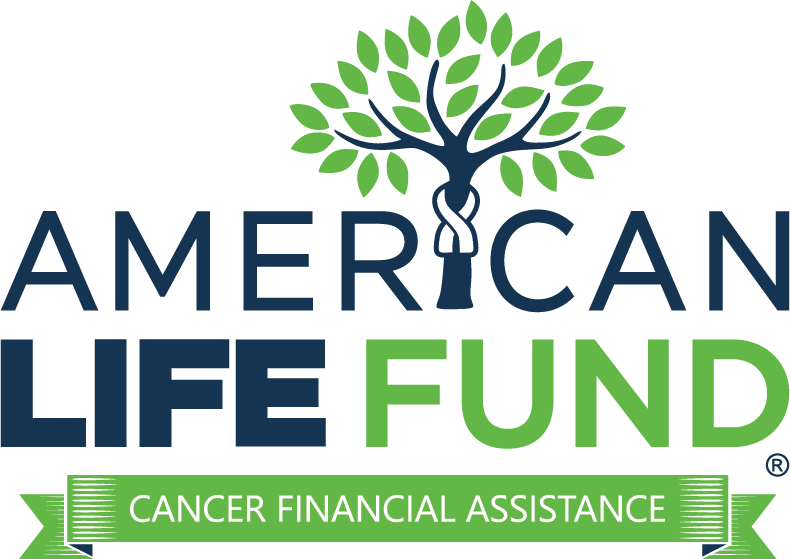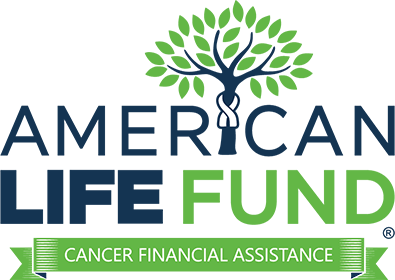Key Takeaways
- Age and Health Status: Individuals aged 65 or older, or younger with significant health impairments, may qualify for a life settlement.
- Policy Type: Permanent life insurance policies like whole or universal life are generally eligible; convertible term policies may also qualify if they can transition to permanent coverage.
- Policy Value: Policies typically need a face value of $150,000 or more to be considered for a life settlement.
- Policy Age: The life insurance policy should be at least two years old to meet eligibility criteria.
- Life Expectancy: Shorter life expectancies can increase the policy’s value in the life settlement market.
Life is filled with changes, and your financial priorities often shift over time. For many individuals, an existing life insurance policy may no longer align with their current needs or goals. Whether it’s due to rising healthcare costs, changes in your retirement lifestyle, or the need for immediate cash to cover medical bills, understanding your options is important.
One valuable financial strategy is a life settlement, which allows policy owners to sell their unwanted life insurance policy for a lump sum payment. This financial benefit can provide a solution for those who no longer wish to pay future premiums or require funds for other pressing life circumstances.
In this guide, we’ll walk you through the life settlement process, including eligibility requirements, considerations, and how this financial transaction can help secure your financial future. Whether you’re dealing with mounting healthcare costs or simply rethinking your financial security, this life settlement guide will provide clarity on how your life insurance policy can work for you.
What is a Life Settlement?
A life settlement is a financial transaction in which a policy owner sells their life insurance policy to a third party, often through a licensed life settlement broker, in exchange for a lump sum payment. This amount is typically more than the policy’s cash surrender value but less than the total death benefit.
Unlike allowing a policy to lapse or surrendering it back to the insurance company, a life settlement transaction provides immediate cash, offering financial flexibility to address pressing needs like medical expenses, retirement costs, or other life circumstances. This can be especially appealing for individuals who no longer wish to pay future premiums or find that their life insurance policies no longer serve their financial goals.
Life settlements are often a valuable financial strategy for policyholders with:
- Policies that accrue cash, such as universal life or whole life insurance.
- Convertible term life insurance policies that can transition to permanent coverage.
- An insured’s life expectancy of 10 years or less, where the policy becomes more attractive on the life settlement market.
By discovering the hidden value in your life insurance policy, a life settlement can help you meet today’s financial needs while providing peace of mind about your financial future.
Eligibility Requirements for Life Settlements
Not all life insurance policies qualify for a life settlement, and understanding the criteria can help determine if this option is right for you. The life settlement eligibility process considers several factors, including the policy type, the insured’s life expectancy, and other personal and financial circumstances. Here’s what you need to know:
Age and Health Status
- Most life settlements are offered to individuals aged 65 or older, though younger individuals with significant health impairments may also qualify.
- The insured’s life expectancy plays a key role, policies for individuals with shorter life expectancies are often more valuable in the life settlement market.
Policy Type
- Permanent life insurance policies such as whole life or universal life policies generally qualify because they accrue cash value.
- Convertible term life insurance policies may also be eligible if they can transition to permanent coverage.
- Temporary life insurance policies, such as traditional term life insurance, typically do not qualify unless converted.
Policy Face Value
- Policies with a face value of $150,000 or more are typically considered, though some life settlement brokers may accept smaller policies depending on market conditions.
Policy Details
- The policy must be active and past the contestability period (usually two years from issuance).
- Policies with loans may still qualify, but the loan balance will affect the net payout.
Financial and Life Circumstances
A life settlement can be a helpful financial strategy for those facing:
- High medical bills or other healthcare-related costs.
- Changes in their retirement lifestyle or financial needs.
- Policies they no longer want or can afford to pay future premiums for.
The Life Settlement Process
The life settlement process helps policyholders unlock the hidden value of their existing life insurance policy. While it may seem complicated, working with a licensed life settlement company makes sure the process is smooth and transparent. Here’s a step-by-step breakdown:
Step 1: Initial Consultation
- Begin by consulting with a life settlement company or provider to determine your life settlement eligibility.
- During this stage, you’ll share basic details about your life insurance policy, including the face value, policy type, and your current health status.
Step 2: Document Submission
Gather important documents, such as:
- Your insurance policy.
- Recent premium payment statements.
- Medical records to assess the insured’s life expectancy.
- These details help determine the policy’s value on the life settlement market.
Step 3: Policy Valuation
The company evaluates factors such as:
- The policy’s cash surrender value and total death benefit.
- Ongoing premium schedule and costs to pay future premiums.
- The insured’s health status and life expectancy.
- This analysis establishes the policy’s market worth for potential buyers.
Step 4: Receiving Offers
- Once your policy is evaluated, the company shares it with potential buyers, such as institutional investors, seeking policies on the life settlement market.
- You’ll receive offers, typically higher than the policy’s cash surrender value but less than the time frame death benefit.
Step 5: Negotiation and Acceptance
- Work with your life settlement comapny to negotiate the best possible offer for your policy owner rights.
- Once you accept an offer, ownership of the insurance policy transfers to the buyer, and you receive a lump sum payment.
Step 6: Closing the Sale
- Finalize the life settlement transaction with a formal agreement.
- The buyer assumes responsibility for all future premium payments, and the policy remains in force under its new ownership.
Why Choose a Life Settlement?
The life settlement process offers immediate financial benefits to policyholders who no longer wish to maintain their insurance policy. Whether you need funds for medical expenses, a new retirement lifestyle, or to reduce ongoing financial obligations, this process can transform your unwanted life insurance policy into a practical solution for today’s needs.
Important Considerations Before Proceeding
Deciding to pursue a life settlement is a significant financial decision. Before moving forward, it’s important to evaluate how a life settlement transaction aligns with your personal and financial goals. Here are necessary factors to consider:
Impact on Beneficiaries
- Selling your life insurance policy means your beneficiaries will no longer receive the death benefit.
- If providing for loved ones after the insured’s death is a priority, consider alternatives like the retained death benefit option, which allows a portion of the policy’s proceeds to remain payable to your beneficiaries.
Tax Implications
- The proceeds from a life settlement may be subject to income taxes.
- Taxable portions typically include the amount received above the policy’s cash surrender value and any accumulated gains.
- Consult a financial advisor to understand the tax consequences specific to your situation.
Alternatives to Life Settlements
Before selling your policy, explore other options:
- Accelerated Death Benefits: Some insurance carriers allow policyholders to access a portion of the death benefit if they face significant medical expenses.
- Policy Loans: Borrowing against the cash value of universal life policies or whole life policies can provide short-term financial relief while keeping the policy in force.
Costs and Fees
- Working with a licensed life settlement broker may involve fees for their services, which are typically deducted from the final lump sum payment.
- Ensure you fully understand the cost structure before proceeding.
State Regulations
- The life settlement market is regulated differently across states. Verify that your life settlement broker complies with the legal requirements in your area.
- States often have laws to protect policyholders, ensuring transparency and fair valuations.
Alignment with Financial Goals
- Consider how selling your policy fits into your overall financial future.
- Whether you’re looking to reduce premium payments, cover healthcare costs, or fund your retirement lifestyle, a life settlement can be a valuable financial strategy if it aligns with your needs.
Transitioning to Viatical Settlements
While life settlements provide financial relief for policyholders with changing circumstances, there’s another option tailored specifically for individuals facing critical health challenges: viatical settlements. Understanding how viatical settlements differ can help you decide which option best meets your needs.
What is a Viatical Settlement?
A viatical settlement is a type of life settlement transaction designed for individuals with a life threatening illness. Like a traditional life settlement, it allows you to sell your life insurance policy for a lump sum payment, but the eligibility criteria and benefits are distinct.
Differences Between Life Settlements and Viatical Settlements
Eligibility:
- Life settlements are typically for individuals aged 65 or older, regardless of health.
- Viatical settlements focus on individuals with significant health conditions and shorter life expectancies.
Payout:
- Because of the insured’s entire life expectancy, viatical settlements often offer higher payouts than traditional life settlements.
Tax Implications:
- Proceeds from viatical settlements are generally tax-free, unlike the potential tax consequences of life settlements.
Why Consider a Viatical Settlement?
- Immediate Financial Support: Provides funds for pressing needs, such as paying off medical bills, covering healthcare costs, or supporting loved ones.
- Eliminates Future Premiums: You no longer need to pay the premium schedule for your policy, freeing up cash for other expenses.
- Compassionate Financial Solution: Offers peace of mind during difficult times, helping individuals focus on their care and family.
Why Work with American Life Fund?
At American Life Fund, we specialize in helping individuals understand their options when it comes to life settlements and viatical settlements. Our team is dedicated to providing compassionate guidance, ensuring you make the best decision for your specific circumstances. Whether you need funds to cover medical expenses, support your family, or improve your financial security, we’re here to help every step of the way.
Your Path to Financial Security Starts Here
Making the decision to sell a life insurance policy is deeply personal and can have a significant impact on your financial future. Whether you’re exploring a life settlement or considering a viatical settlement, understanding the eligibility requirements and the life settlement process is necessary to making an informed choice.
A life settlement transaction offers policyholders the chance to convert an unwanted life insurance policy into a lump sum payment, providing immediate financial relief. For those facing serious health challenges, viatical settlements can serve as a solution, offering funds to cover pressing needs like medical expenses and support during difficult times.
At American Life Fund, we are committed to guiding you through these options with care and expertise. Our knowledgeable team can help you evaluate your life settlement eligibility, understand the life settlement market, and make the best decision for your needs.
Take the Next Step
- If you’re ready to explore how your life insurance policy can work for you, we’re here to help.
- Contact us at 877-261-0632 or visit here to see if you qualify today.
- Discover how a life settlement or viatical settlement can help you achieve the financial flexibility and security you deserve.
Convert your insurance policy into a resource for today. Let’s secure your financial future together.
FAQs About Life Settlements
What is the difference between a life settlement and a viatical settlement?
A life settlement is when a policy owner sells their life insurance policy for a lump sum payment, often when they no longer need the policy or want to stop paying premiums. A viatical settlement is similar but is specifically for individuals with a life-threatening, offering potentially higher payouts.
How much is my life insurance policy worth in a life settlement?
The value depends on factors such as:
- The face value of the policy.
- The insured’s life expectancy.
- The type of policy (e.g., universal life, whole life, term, etc.).
Are life settlement proceeds taxable?
It depends. In many cases, proceeds exceeding the policy’s cash surrender value may be subject to taxes. Consult a financial advisor to understand the tax implications for your specific situation.
Why should I work with a licensed life settlement broker?
A life settlement broker ensures transparency and helps you secure the best offer for your policy by presenting it to multiple buyers in the life settlement market. They guide you through the life settlement process, making it easier and more efficient.





